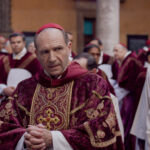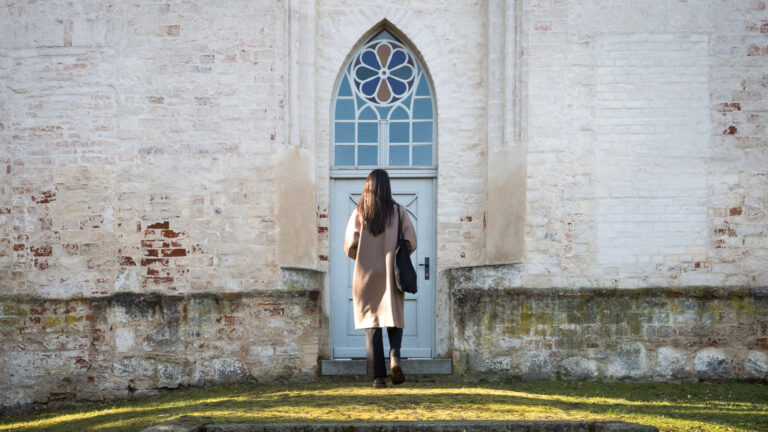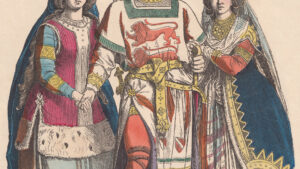James Mangold’s Ford v Ferrari is probably the Oscar best-picture nominee least likely to win the award this Sunday night. That doesn’t mean it’s not great—just that it’s less showy than some of the other nominees (here’s looking at you, Joker).
I liked Ford v Ferrari when I first saw it last year. Based on the true story of race-car rivalries and American auto ambition, Mangold’s film is the best sort of elegant-yet-approachable, old-school Hollywood filmmaking. It’s a sports movie done right.
But the film has only grown in stature the more I think about it—particularly in the wake of Kobe Bryant’s death. As a newish father myself (with a second child on the way), the fatherhood aspect of Bryant’s death—dying alongside his daughter, leaving three other children behind—hit me hard. Even though I am a #boydad, the #girldad meme wrecked me. Any father sees tragedies like these as bracing reminders that as much as we want to shield and protect our children from danger, life is precarious. There are bumps in the road; hazards we can’t control. Fatherhood is a fragile, precious thing, and Ford v Ferrari captures this well.
Tensions of Fatherhood
As much as Ford v Ferrari is about fast cars, it’s also about fathers and sons. In this case it’s one particular father, British race-car driver Ken Miles (Christian Bale), and his young son Peter (Noah Jupe). Their tender relationship raises the stakes for the drama that unfolds.
Car racing, after all, is a highly dangerous sport. Is it prudent for a husband and father to keep pressing for wins and records in such a risky sport? Even though Peter is thrilled (and arguably strengthened) by watching his dad bravely push himself—and his car—to the limit, he is also naturally afraid. A lot can go wrong when you’re driving at 200 mph around curving tracks, dodging and passing other high-speed vehicles.
The film (particularly Bale’s remarkable acting) beautifully captures some of the tensions of fatherhood. How do you teach your child safety and prudence without raising them to be too safe and risk-averse? How do you shield them from danger without being overprotective? How do you model ambition and risk-taking without recklessly setting them (or you) up for disaster? What’s the value of modeling diligence toward some hard-won achievement, if it means more time away from home?
Holy Danger
One of the best scenes between Ken and Peter happens on a race track at dusk. The two sit side by side, gazing out at the pavement. They exchange this lovely dialogue:
Ken: “If you’re going to push a piece of machinery to the limit, and expect it to hold together, you have to have some sense of where that limit is. Look out there. Out there is the perfect lap. No mistakes. Every gear change, every corner. Perfect. You see it?”
Peter: “I think so.”
Ken: “Most people can’t. Most people don’t even know it’s out there, but it is. It’s there.”
The tensions of fatherhood fill this little scene. There are limits in life, real dangers. Mistakes can be deadly. And yet ambition, even risk, is good. The perfect lap—just like the perfect basketball game, or awesome achievement in any vocation—is out there to be had. God-glorifying excellence is within our reach. But it won’t come easy.
There is a holy danger in this scene, an awareness that life is both terrifying and glorious, and above all—as the dusk setting underscores—all too short. This is not a gloomy or foreboding scene, however, even as it foreshadows what’s to come. It’s sobering and contemplative—capturing the urgency of Psalm 90:12: “Teach us to number our days that we may get a heart of wisdom.”
Life Is Precarious and Precious
The final 10 minutes of Ford v Ferrari, like the final 20 minutes of The Irishman, may feel like an anti-climatic downer. But these endings are cruxes more than codas. They frame how we should read the entire films. Spoilers follow.
Ford doesn’t end with the stereotypical sports-movie victory. Rather, it ends with our hero’s untimely death, at age 47, in a fiery crash as he drives on a test track. Ken’s death is all the more traumatic because it’s witnessed in person by Peter, then 14. This is the scene that keeps playing through my mind as I see the images from the crash site where Kobe Bryant, father of four, died at age 41. Kobe and Ken were both legends who reached the pinnacle of their respective sports. Both were by many accounts excellent fathers. And yet for all their glorious achievements and desires to be there for their families, both died in their 40s. However much like superheroes and well-oiled machines they might have seemed to their fans (and doubtless their children), they were in the end men—fragile, mortal, breakable men. And life is so precarious. Fog clouds our visibility. Tires blow out. Cancer and heart attacks and a million other things can kill us.
Even as I write this, I tremble at the thought of how out-of-my-hands my life—and that of my wife and sons—really is. And yet Ford shows—as does fellow best-picture nominee 1917 (my review)—that real leadership is not paralyzed by what we can’t control, nor is it naive about what we can. Rather, it is driven by a sober-minded, steadfast commitment to stewarding the gifts God gives—our talents, our loved ones, the open roads we find before us—in the time we have. For you do not know what tomorrow will bring, James tells us. “What is your life? For you are a mist that appears for a little time and then vanishes” (James 4:14).
Real leadership is not paralyzed by what we can’t control, nor is it naive about what we can.
To see ourselves as mist, as dust, as utterly vulnerable in the face of life’s contingencies, does not make us soft. If anything, it makes us stronger. When we know any day could be our last, we have less tolerance for the time-wasting trifles of a comfortable life. When we admit our weaknesses and our limits, we are more fully human.
The frailty of fatherhood doesn’t make one cower in a corner; it rather emboldens a father to more fiercely live and love. It reminds us to seize those magical moments between daylight and dusk, when we can sit with our son or daughter—a pair of passing vapors sharing a small stretch of time—and look out to an unknown future with courage and hope.
Out there is the perfect lap. Do you see it?
Try Before You Buy: FREE Sample of TGC’s New Advent Devotional

Choosing the right Advent daily devotional can be tough when there are so many options. We want to make it easier for you by giving you a FREE sample of TGC’s brand-new Advent devotional today.
Unto Us is designed to help you ponder the many meanings of this season. Written by TGC staff, it offers daily Scripture readings, reflections, and questions to ponder. We’ll send you a free sample of the first five days so you can try it out before purchasing it for yourself or your church.

































